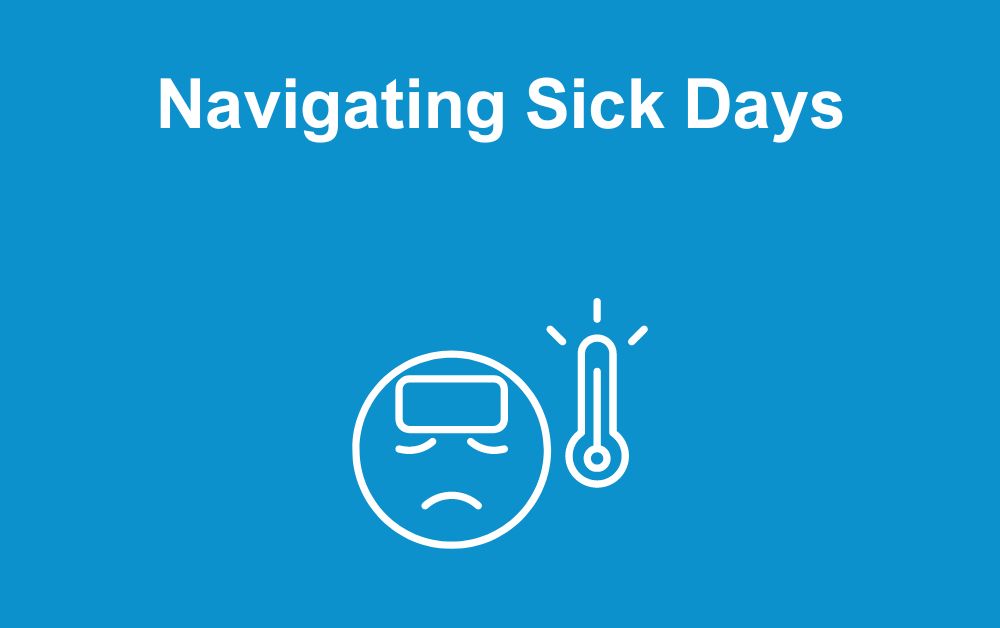Navigating Sick Days: Supporting Your Team and Your Business

Sick days are a part of professional life. It is something that all employers and employees will experience at some point. How we handle them can significantly impact both our team’s wellbeing and or business’s productivity. Today is National Sickie Day, and this blog will cover all the best practice for how to navigate sick days.
Promote a Healthy Workplace Culture: Encourage open communication and transparency within your organisation. Make it clear that it’s okay for employees to take sick days when they need to. A culture that values wellbeing ultimately leads to more productive employees.
Clear Sick Leave Policies: Have a well-defined sick leave policy in place and ensure all employees are aware of it. Make it easily accessible in your company’s handbook or on your intranet. This transparency helps set expectations.
Flexible Remote Work Options: Consider allowing employees to work from home when they’re feeling under the weather. With modern technology, many tasks can be done remotely, and this can help reduce the number of full sick days taken.
Empathetic Response: When an employee calls in sick, respond with empathy and understanding. Ask if they need any support or accommodations and let them know you appreciate their responsibility in notifying you.
Cover for Absences: Cross-train your employees, if possible, to cover for their colleagues when they’re out sick. This ensures that the workload is managed effectively and prevents excessive stress on remaining team members.
Medical Certificates: Depending on your company policy and local regulations, you may require medical certificates for extended sick leave. Make sure your employees are aware of this requirement.
Monitoring Patterns: Keep an eye out for patterns of excessive sick leave. If an employee is frequently calling in sick, it may be indicative of underlying issues. Approach the situation with sensitivity and offer support.
Encourage Preventive Health Measures: Promote healthy habits within your team, such as regular exercise, balanced nutrition, and stress management. A healthier workforce is less likely to fall ill.
Flexibility for Caregivers: Understand that employees may need time off to care for sick family members or children. Offering flexibility in such situations can foster loyalty and trust.
Lead by Example: As a leader, set an example by taking care of your own health and wellbeing. Show your team that it’s okay to take a sick day when needed.
Remember, the key is to strike a balance between supporting your employees’ wellbeing and maintaining productivity. When employees feel valued and supported, they are more likely to reciprocate with dedication and commitment.
Let’s continue to create workplaces where employees are encouraged to prioritise their health, knowing that it benefits both them and the organisation!
Are you ready to elevate your HR strategies?
Connect with our expert HR team for tailored solutions and insights. Call The HR Booth at 01383 668178 or reach out via email at info@thehrbooth.co.uk or use the contact form.
